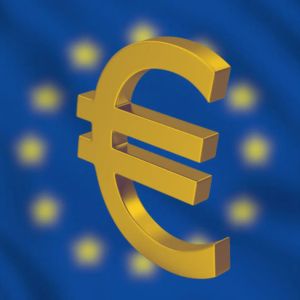Trump’s trade policies rattle global investors
4 min read
The Euro has jumped over 14% against the US dollar since the start of 2025, and it’s not slowing down. That rise is getting stronger as political decisions in Washington keep rattling global markets. According to CNBC, central bankers speaking in Aix-en-Provence, France, last week said Trump’s economic choices, especially the recent tax-and-spend law and growing tension with the Fed, are pushing investors away from the dollar and into the Euro. The currency is gaining appeal as a safer alternative, not because the European Union suddenly became perfect, but because the US looks way worse. Yannis Stournaras, the governor of Greece’s central bank, blamed the US dollar’s slump on three things: Trump’s new tariffs, his attacks on the Federal Reserve, and the long-term cost of his “beautiful” tax bill. “If you combine [US] tariffs with the attacks on the Fed and institutions, with the fiscal sustainability of the United States following the ‘beautiful’ tax bill, it explains the evolution of the dollar exchange rate in the recent weeks,” Yannis said during a CNBC-moderated panel. He also warned that “those who impose tariffs will be hurt first,” calling out the direct hit that higher trade duties are having on US credibility and economic expectations. Trump’s trade policies rattle global investors As of Monday, there’s still no confirmed outcome on a trade deal between the US and the European Union. Talks are dragging, and an update is expected sometime soon. Meanwhile, new agreements with the UK and Vietnam suggest a clear trend: tariffs are up. Even though the final rates are lower than Trump’s threats back in April, they’re still higher than where they stood at the start of 2025. Investors are reading the writing on the wall. That’s why the Euro is moving up, even though the European Central Bank just slashed interest rates and the Fed hasn’t budged. Despite that policy gap, Trump’s win last week, the passage of his major tax and spending bill, is making things worse for the dollar. The new law is expected to widen the US deficit. And that’s not a small footnote. Foreign creditors are already spooked by the chaos caused by tariffs, and now they’re looking at an even more fragile fiscal picture. The combination is deadly for the dollar’s appeal, and the Euro is stepping in to fill the space. Stournaras said the Euro has a shot at increasing its share in international reserves. But to make that happen, the European Union has to finish its Banking Union and Capital Markets Union projects. If those internal hurdles are fixed, the Euro can grow its role globally, he said. Gabriel Makhlouf, the head of Ireland’s central bank, backed him up. “I think what we’re seeing right now with the dollar is a realignment, a readjustment on the part of investors,” Gabriel said. He added that investors are reacting to the weakening rule of law in the US. “They’re seeing the rule of law in the United States actually weaken, and they are responding accordingly, because that means there’s a greater risk to their investments and their assets, and they’re adjusting.” ECB sees long-term path for euro to expand For over a decade, the Euro’s role in foreign currency reserves has stayed steady at around 20%. But the dollar’s piece of the pie has shrunk. In 2014, it was 68.8%. By the end of 2024, it had dropped to 57.8%. That’s a sharp decline, and 2025 is showing signs of pushing it even lower. If Europe acts fast to strengthen financial ties across countries, the Euro might step in as the next best option for global reserves. Paschal Donohoe, the president of the Eurogroup, a group of finance ministers from the eurozone, said that borrowing in Euro is set to grow a lot over the next few years. That growth is mostly because of the NextGenerationEU plan, which was launched after the COVID-19 crisis. “The key thing for us is how we can have strong foundations in place for the euro,” Paschal said on Saturday, pointing to the need for stability and solid policymaking. In the short term, analysts say the Euro-dollar rate will move up and down based on news about tariffs, rate decisions, and inflation. But the overall outlook still favors the Euro. Francesco Pesole, a foreign exchange strategist at ING, said the dollar barely moved when oil prices rose and global tensions increased. That’s unusual. He said the reason is that traders don’t want to hold dollars because of medium-term risks. Those include Trump’s pressure on the Fed, rising fiscal concerns, and the chance that interest rates get cut too soon. At Deutsche Bank, George Saravelos and Christian Wietoska pointed to one key problem: nobody wants to buy US assets right now. “Foreigners don’t need to sell US assets to weaken the dollar but merely to say ‘no thank you’ to buying more,” they said in a note on July 1. Their dollar flow data backs that up. The demand just isn’t there, and until something changes, the Euro is going to keep winning. KEY Difference Wire : the secret tool crypto projects use to get guaranteed media coverage

Source: Cryptopolitan


